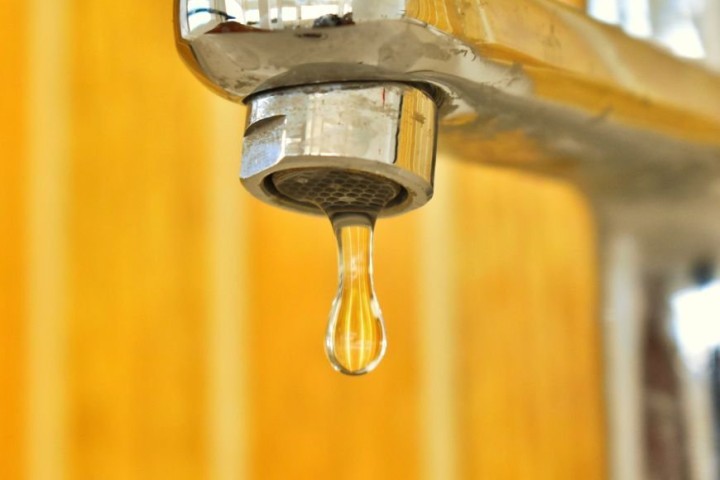Another day, another news story of commercial buildings riddled with Legionella bacteria.
It only takes a quick scroll through the news headlines to find reports from places such as nursing homes, swimming pools and public buildings, all grappling with Legionella contamination.
But why is this the case? Are Legionnaires’ outbreaks preventable? And what’s the big deal, anyway?
Let’s dive in…
What is Legionella bacteria?
Legionella is a type of bacteria that can cause a severe form of pneumonia called Legionnaires’ disease.
The bacteria is commonly found in natural water sources such as rivers, reservoirs, lakes and streams. However, they can also thrive in artificial water systems such as hot and cold water systems, cooling towers, swimming pools, spas and even decorative fountains.
When people breathe in water droplets contaminated with Legionella bacteria, they can become gravely ill with Legionnaires’ disease.
What is Legionnaires’ disease?
As mentioned above, Legionnaires disease is a particularly severe form of pneumonia. It causes inflammation of the small air sacs and results in symptoms such as high fever, chills, muscle aches and shortness of breath.
The illness should not be underestimated, as symptoms can sometimes be fatal - particularly among people with weakened immune systems or underlying medical conditions.
In the UK, outbreaks of Legionnaires’ disease can usually be traced back to large buildings with complex water systems, as these allow for the bacteria to grow more quickly.
Are Legionnaires’ outbreaks preventable?
The good news is that as nasty as Legionnaires’ outbreaks are, they are also entirely preventable. By implementing appropriate control measures and conducting regular Legionella Risk Assessments, the risk of an outbreak are significantly reduced.
Some key prevention strategies include:
- Working with a professional to conduct regular Legionella Risk Assessments.
- Regular inspection and testing of water systems to identify potential sources of Legionella growth and contamination.
- Monitoring and keeping accurate records of your Legionella Risk Assessment and water sampling results.
- Maintaining appropriate water temperatures to inhibit Legionella growth. Typically, cold water should be stored below 20°C, and hot water should be above 50°C.
- Routine cleaning and disinfection of water systems, especially in areas prone to contamination or biofilm formation.
Who is responsible for a Legionella Risk Assessment?
All employers, landlords and building managers have a legal duty of care to ensure that the people using your workspaces or buildings are free from the risk of exposure to Legionella in water systems. This falls under the Health and Safety at Work Act of 1974 - and can be achieved through regular Legionella Risk Assessments.
Where is Legionella most likely to be found?
Whilst any water system is at risk of Legionella, some water systems are more susceptible to bacterial growth than others. High-risk systems typically have:
- Water temperature between 20 - 45°C
- Stored or re-circulated water
- Evidence of rust, sludge, scale or organic matter
- Aerosol-producing features such as cooling towers or showers
- Stagnant water, or systems that are infrequently used
It's important to mention that when a building remains unoccupied or vacant for an extended duration (for instance, a rental property between tenants), the chances of Legionella growth increase.
Stagnant water allows Legionella bacteria to multiply more rapidly, and without regular flushing of the system, unoccupied buildings are the perfect breeding ground.
Here at Focus On Testing, we carry out Legionella Risk Assessments for buildings of all sizes and across various industries - ranging from spas and swimming pools to leisure centres, care homes, schools and domestic properties.
How often should you carry out a Legionella Risk Assessment?
Generally, the ‘industry standard’ is that you should carry out a Legionella Risk Assessment every two years; however, that are certain situations whereby an assessment is required sooner by law…
- If a Legionella outbreak is suspected or positive samples are recorded.
- When changes are made to the water system, pipework or assets.
- When the water system has had a change of use.
- When building users or occupants fall within a high-risk category, such as those with an impaired immune system or the elderly.
- If a building has been left unoccupied or unused for a prolonger period of time
What is involved in a Legionella Risk Assessment?
Here at Focus On Testing, our Legionella Risk Assessments typically consist of two main steps.
Step 1 - The first step involves reviewing your records, and checking any previous assessments to ensure that all recommendations of remedial work have been acted upon.
Step 2 - The second step involves a physical assessment, with a specific focus on the areas where water is stored or where there is a potential for aerosols to be created.
Based on these findings, a report will then be prepared, which will include any recommendations for necessary actions to mitigate or reduce the risk of Legionella contamination.
Our report will focus on the following areas:
- Evaluating the risk level of building occupants - It is crucial to determine if any individuals on-site may be more susceptible to Legionnaires’ disease due to a weakened immune system or their age.
- Recording water outlet temperature - Water services must be operated at temperatures that reduce the risk of Legionella growth. That’s under 20°C or over 50°C.
- Assessing the cold and hot water systems - Is the cold water tank accessible, insulated and tightly covered to prevent the risk of vermin entering?
Why are Legionella Risk Assessments so important, anyway?
For commercial business owners and landlords across the UK, we cannot stress enough the importance of taking the appropriate steps to mitigate the risk of Legionella contamination.
Moral obligation
As a business owner or building manager, you have a moral duty to look after your building's employees or occupants.
We hate to be the bearer of bad news, but Legionairres’ disease isn’t pretty - and nobody should have to suffer or lose their life due to inadequate testing procedures. Over the years, the UK has witnessed numerous high-profile cases of severe Legionnaires' Disease, resulting in multiple fatalities.
We firmly believe that even one death from Legionnaires' disease in the UK is too many, especially when we know that through thorough Legionella Risk Assessments and proper system maintenance, the disease can be prevented.
Financial implications
Beyond the moral obligation to safeguard the health and well-being of occupants, there are legal and financial consequences for failing to adhere to regulations. Those found guilty of negligence can face fines, prosecutions, and even imprisonment.
Additionally, reputational damage and loss of trust from clients or tenants can have long-lasting effects on your business or property.
Regulatory compliance
Conducting regular Legionella Risk Assessments is not only a best practice but also a legal requirement under the Health and Safety at Work Act of 1974 and the Approved Code of Practice L8 (ACoP L8). By carrying out these assessments, you demonstrate compliance with the law, which helps avoid potential legal issues and penalties.
Risk management
Regular Legionella Risk Assessments contribute to an overall risk management plan, helping you identify potential issues early on and address them proactively. Early detection and remediation can prevent more significant problems in the future and save your business time and money in the long run.
It’s as clear as the water in your building should be…
By taking a proactive stance against Legionella bacteria in your water systems, you’re not only defending the well-being of your employees, tenants or visitors - but you’re also shielding your business’ reputation and wallet.
But hey, we get it. You’re a business owner? Maybe a building manager? One thing is for certain, you’ve got a lot on your plate.
Legionella Risk Assessments might not be perched at the top of your priorities, and that’s fine. But that’s where we come in.
Get in touch with our team of Health & Safety experts today on 0330 088 4597 or by dropping us a message here, and we’ll ensure your building remains free from the silent but deadly clutches of Legionella.




















